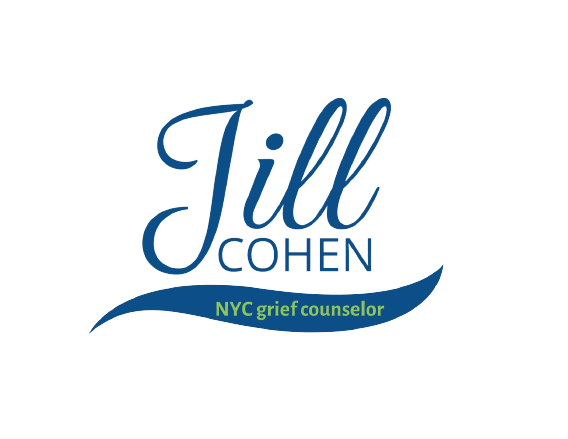Avoid Major Decision-Making While Grieving—Why This is So Important
5 Minute Read
Do Not Make Hasty Grief-Driven Decisions
The phrase “don’t make any big decisions for the first year after a loved one dies” is not a myth. It’s a rule, and there are good reasons for it.
The death of a loved one is the most stressful event a person can endure in a lifetime. Whether it is unexpected or expected, it is still a shock to your system and makes even the tiniest of tasks and minor decision-making very difficult.
When you’re grieving, you’re usually not thinking clearly and not necessarily in the right frame of mind.
For Example:
You’re impulsively trying to make it through the day, do whatever it takes, do whatever works as you try to figure out your “new normal” and shape your new life without your loved one.
Grief clouds your reactions and responses. There is also such a thing as “grief brain fog,” a kind of fog that accompanies you for a while in the early parts of grief.
Learn more about “grief brain fog” by clicking the button below
NPR also gives good info about this condition in this article:
Why it’s so important to delay making life-altering decisions
4 of the “big ones” where the “no big decisions for the first year” rule applies:
Getting rid of keepsakes, mementos, photos, clothes, and collectibles.
Sometimes it’s tempting to want to get rid of all the memories that make you sad and feel impossible to live with. Be careful; you may feel differently at a later date when it’s too late. It’s better to wait than to regret your actions.
This is exactly why it’s a good idea to wait and give grief its time before you do random disposal of things. As you adjust to your loss, you actually may be able to tolerate remembrances and they may be a comfort to you rather than a painful reminder.
That’s the time when you’ll be glad you kept them. Until that time, if it hurts to look at clothes, photos or other objects, put them out of your sight.
Changing jobs.
When I am counseling my clients, they often tell me how hard it is to return to their jobs after experiencing a death. It’s hard to return to work friends and colleagues when you’re feeling “different” and even emotional around them. It can be a challenge.
You may feel like you’d like a new job so that you’re in a different environment, or you may want to switch careers. But slow down, give yourself at least six months before re-evaluating whether you really need to switch jobs or careers.
Before the six-month period, if your job seems too stressful or intense to handle while grieving, see if you can work out a situation with your current employer that might be more comfortable for you. Of course, I wish that employers would be more sensitive to their grieving employees.
I have had some lucky clients whose companies have paid for their individual grief counseling with me, which is a great employee benefit.
The website www.whatsyourgrief.com has an interesting commentary about making emotional decisions while grieving. Take a look.
Moving.
Ah, stop right there.
For many, the initial response to a death is: I have to move.
It is suggested that you delay this life event for at least six months, but preferably for a year.
Moving is a big deal, a huge life change and not an undertaking to be taken lightly. It’s also exhausting, just as grief is exhausting. Two tiring processes at the same time can be a recipe for disaster.
Give yourself a chance to try to get used to living in your home without your loved one. Yes, it will be more lonely. Yes, your routines will be changed. Yes, your space may loom too large. Yes, the memories surrounding you in your home may be painful.
But, adjusting to a “new normal” takes time. Give it that.
The decision to move deserves much more thought than a knee-jerk reaction. You may see moving as an escape from the reminders of your loved one, but it also may not even be a financially wise decision in the long run.
As the months go on, you may find that living in your space is not as bad as you had originally thought. In fact, there may be some comfort in it. If perhaps your loved one died in your home, it may be hard in the first few days or months.
You may want to stay with a friend, a relative, or in a hotel until things settle down.
But don’t put the For Sale sign out just yet.
Other life decisions like having a baby, not having a baby, getting married, getting divorced, retiring, or making major investments.
These are big decisions that require rational and serious thought. Wait on them, and try to seek guidance if needed, to make sure that your reasons for your decisions are sensible in the grand scheme of things.
Financial Decisions
Don’t make any financial decisions until you are settled into your “new normal” and have a realistic concept of your finances, your lifestyle, your needs, and your future potential income.
NOTE: Sometimes it may be possible to strategize a fix for a situation with a decision that is temporary or reversible.
Go for that kind first.
Before you approach the “big decisions,” seek expert guidance, support, and thoughtful discussions about each decision and its consequences.
Talk to a grief counselor
Sometimes, an outside professional –perhaps a grief counselor -- can help you weigh the pros and cons and arrive at the logic in your decision-making. An objective viewpoint and some guidance around your thinking may be just what you need. I spend time with my clients on decision-making all the time. And it helps.
Talk to trusted people
People who have your best interests in mind – an accountant, lawyer, financial advisor, clergy, close relative, or close friend.
Grief is hard work.
It is important to take care of yourself while grieving. It takes a mental, physical, emotional, and spiritual toll on our bodies, mind, and heart. So, why add the extra stress of decision-making to the mix?
If you think a grief counselor can help you sort through your new life and help with your grief, visit my website and let me support you at this time.




